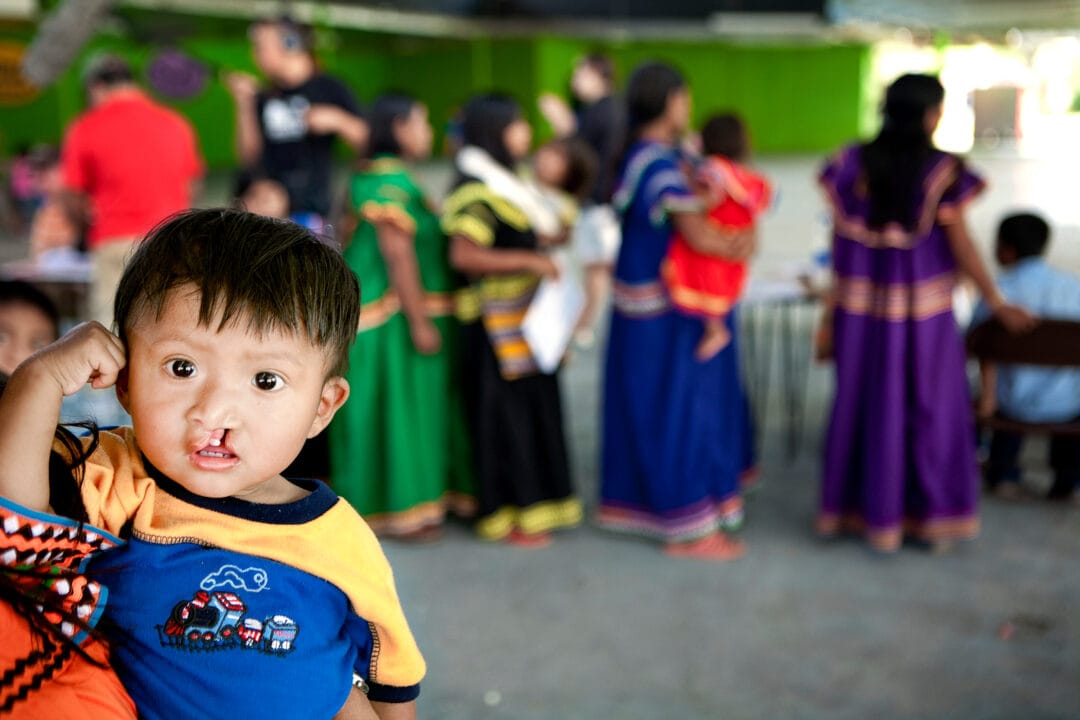
Scenes from the field: Panama basic life support training
The weeklong programme, conducted provided life support training to 73 Operation Smile medical volunteers from 11 countries across Latin America.
Strength in numbers
Volunteer were from Bolivia, Colombia, Dominican Republic, Ecuador, Guatemala, Honduras, Nicaragua, Mexico, Panama, Paraguay and Peru. From that total, 38 basic life support (BLS) certificates were rewarded, as were 70 paediatric advanced life support (PALS) cards. Thirteen volunteers became certified to instruct BLS courses, and 11 more earned credentials to teach PALS.


Safe surgery for all
“Training BLS and PALS instructors allows them to take their knowledge back to other health providers in their countries who perhaps do not have the opportunity to participate in the course,” said Antonio Correa from Puerto Rico, a life resuscitation instructor who trains BLS and PALS instructors. “With BLS and PALS, the cases of breath or cardiac arrest are very low on Operation Smile medical programmes thanks to these courses, which are absolutely necessary for the highest levels of patient safety.”
It’s about been prepared
“Having BLS and PALS training is necessary when working with patients who have no pre-existing conditions, as you need to be prepared for anything,” said Homaire Caicedo, American Heart Association instructor and Operation Smile clinical coordinator from Ecuador.
“When a person doesn’t know how to manage a complicated situation or emergency, instead of solving the problem, they can end up making it worse.”
Homaire added that she’s passionate about training fellow Operation Smile medical volunteers and serving as clinical coordinator: “Operation Smile volunteers are always open and willing to learn. It does not matter who teaches the course, they are always ready. And these means they will be ready to help whenever the need arises… I was born in Operation Smile – it’s like my mother. Fifteen years ago I started volunteering as a nurse. I grew up and have been shaped by Operation Smile. If I were to be born again, I would still be born as a volunteer with Operation Smile.”


Keeping skills afresh
Longtime Operation Smile Colombia volunteer anaesthesiologists Drs. Polidoro Saavedra, and Leonor Vargas de Ortega shared their insights on the importance of Operation Smile’s resuscitation training courses.
“This training is very necessary to be able to update our knowledge of how to manage emergencies in our operating rooms. Also, these courses give us the opportunity to interact with colleagues from other countries, and they provide us with motivation to continue serving as Operation Smile volunteers,” said Polidoro, a 20-year Operation Smile volunteer.
“In our everyday practice, we do not frequently have the opportunity to practice these methodologies. For this reason, we forget many details and this course refreshes our knowledge and brings us up to date. Additionally, we have the chance to share with many people that feel the same and are carrying out their service as volunteers,” said Leonor, who has served for 25 years as an Operation Smile volunteer.
Training for safe surgery
Training in life resuscitation ensures highest standard of care at our medical programme




Cleft care in Panama since 1991
